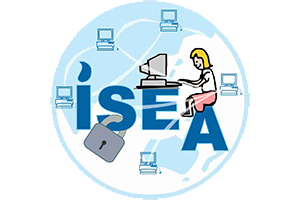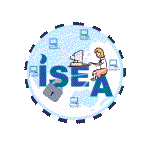Digital Detox
Digital detox is a process that refers to a time period of conscious restrain in using digital devices like smartphones, televisions, computers, tablets and social media sites. It may include activities like avoiding scrolling social media and constant checking of mails, avoiding texting etc., The purpose of the effort is to avoid digital distractions to reconnect with the real world around you and relax yourself to enjoy the moment.
Importance
The unprecedented ways in which individuals are engaging themselves with the digital devices has made it a cause of concern for them from various perspectives. These concerns mainly relate to the users health & wellbeing and includes security issues related to user data, finance, network, system etc.,
Digital detox is a primary step in this direction which encourages digital users to make responsible and hygienic choices in proper usage of digital devices and data consumption, and inculcate healthy digital device practices the encourages the ‘me time’ and make time for connecting in real world rather than be hooked to virtual world.
Internet/Digital addiction
Excess and unregulated engagement with digital devices may it be with playing video games or compulsive online shopping or with social media platforms etc., can all be broadly categorized under digital or internet addiction.
Dangers
Occasionally Digital/internet addiction can become a real cause of concern. When left unchecked it can take the form of disorder which is also referred to as Internet Addition Disorder or Compulsive Internet Use (CIU), Problematic Internet Use (PIU), or iDisorder. Theorized by Dr. Ivan Goldberg, MD in 1995*, the disorder was compared by him to its original model to pathological gambling.
Digital addiction has gained increasing attention from researchers, mental health counselors, doctors, media and the general public, because of its impact on a person’s brain, health and overall wellbeing. In fact, a number of other countries — including India, Italy, Japan, China and Taiwan — have declared that digital addiction is a public health crisis.
Causes
As identified by mental health experts, the reasons behind internet addiction include –
Pleasure factor
The internet addiction seem to be related to the pleasure generation centre of the brain, as the addictive behavior triggers a release of dopamine to promote the pleasurable experience activating the release of chemical. If left unregulated, over time the individual’s need for more such activity increases to induce similar pleasure response.
Variable reinforcement effects
As per the Variable Ratio Reinforcement Schedule (VRRS) theory, the cause of addiction may be multiple layers of rewards. That is, constant internet surfing leads to multiple unpredictable rewards. For example- addiction to Facebook provides a multiple and unpredictable layer of rewards in the sense that every time you sign on to read your updates, you get repeated and unexpected good news, updates, likes, shares which is never ending or not predictable and so you comeback for more.
Anxiety and Depression
It is observed that people suffering from anxiety or depression, may turn to the Internet to fill the void and relieve their suffering from these conditions. Similarly, shy individuals and those with social awkwardness might also turn to the Internet as it does not require interpersonal interaction and is emotionally rewarding.
Warning signs or Symptoms of Digital Addiction
Behavioral symptoms
- Spending most of the time online
- No longer interested in real time activities/hobbies
- Skipping daily routine and negligent grooming, to keep up with online activity
- Using mobile devices during wake up and bed time
- Agitation when not accessing digital devices
- Lying about your internet use
- Inability to Prioritize or Keep Schedules
- Time drain
Physical Symptoms
- Fatigue
- Insomnia
- Bodily discomfort like backaches, headaches, musclepain, Carpal tunnel syndrome, eye strain etc.,
- Unintended weight loss or weight gain
Mental symptoms of internet addiction
- Poor concentration
- Attention Deficit disorders
- Anxiety and Depression
- Language issues in children
- Trouble distinguishing reality from fantasy
- Memory impairment
- Agitation and Mood swings
Social symptoms of internet addiction
- Irritable mood
- Social isolation and loneliness
- Employment problems
- Strained interpersonal relationships
- Academic difficulty
Digital Detox and benefits
Taking breaks from work during weekend and yearly holidays, gives you the much needed time to relax, refresh and rejuvenate and get back to task with renewed spirits. Similarly taking well planned, timely and conscious daily breaks from digital device usage, will aid in digital detox and will reward you with many health benefits, help you with better usage of time and will help promote better relations with work life balance.
Benefits of Digital detox
- Reduces stress and anxiety
- Better sleep
- Better work-life balance
- Promotes physical and mental health
- Helps unwind n relax
- Helps build healthy hobbies
- Productive and efficient usage of time
- Promotes healthy social life and better interpersonal relations
Few ways and means of Digital Detox
Assess yourself to set gradual and timely goals
Know where you stand in your digital device usage habits and accordingly set your goals for necessary corrective action in that direction setting timely goals with required commitment.
Set limits and make it work for you
Know that a digital detox is a personalized plan and it can vary from person to person depending on individual usage, needs and goals. You may want to try what works for you.
For example you may like to consider i) a complete digital fast – which is avoid devices completely for certain period, or ii) go on specific detox by avoiding/restricting some specific app/game/tool etc., or iii) restrict on using social media platforms, or iv) plan avoid usage of devices during specific times in a day like wakeup, mid-day and sleep to give breaks etc.,
Consider long term benefits
Focus on achieving long term benefits of developing an healthy body and mind, better interpersonal relations, efficient time management etc., as a goal and keep working on accordingly managing your digital device usage habits by gathering support
Gather support from like minded people
Gather required support from family members, close friends to encourage you and provide accountability. Share your goals with like-minded and supportive people. You can share ideas on how to stop your targeted behavior.
Assess your progress and move forward
Evaluate your progress toward achieving hygienic digital usage practices regularly, asses the benefits and barriers you experienced during the digital detox, and appropriately regulate your actions on any aspect of the change moving forward.
Manage features on your mobile
Look into putting in practice some tips for effective time management like – deleting time-consuming apps and disabling distracting features like notification alerts, auto-push notifications, setting screen to gray scale to keep you from waking at night, creating a screen lock with questions like ‘what is the need?’ ; Why now? Etc.,
Create digital free zones
Have digital device/ mobile free zones and make it a practice to keep it out of sight during bed time, food time and family time. For example You may plan to have a charge your phone outside your bedroom.
Indulge in healthy hobbies/pass time activities
Develop healthy hobbies that you really like and feed your soul giving yourself the ‘me time’, it may include things like making time for quite walks, playing board games with family, outing with family, cooking, gardening, painting , meeting up with friends, reading good books, volunteering etc.,
Digital detox is all about taking charge and control of how you manage or spend your time, energy and what you give your attention to. It helps you realize what you want more and less of so you can break unhelpful habits and create new ones that are more meaningful.

